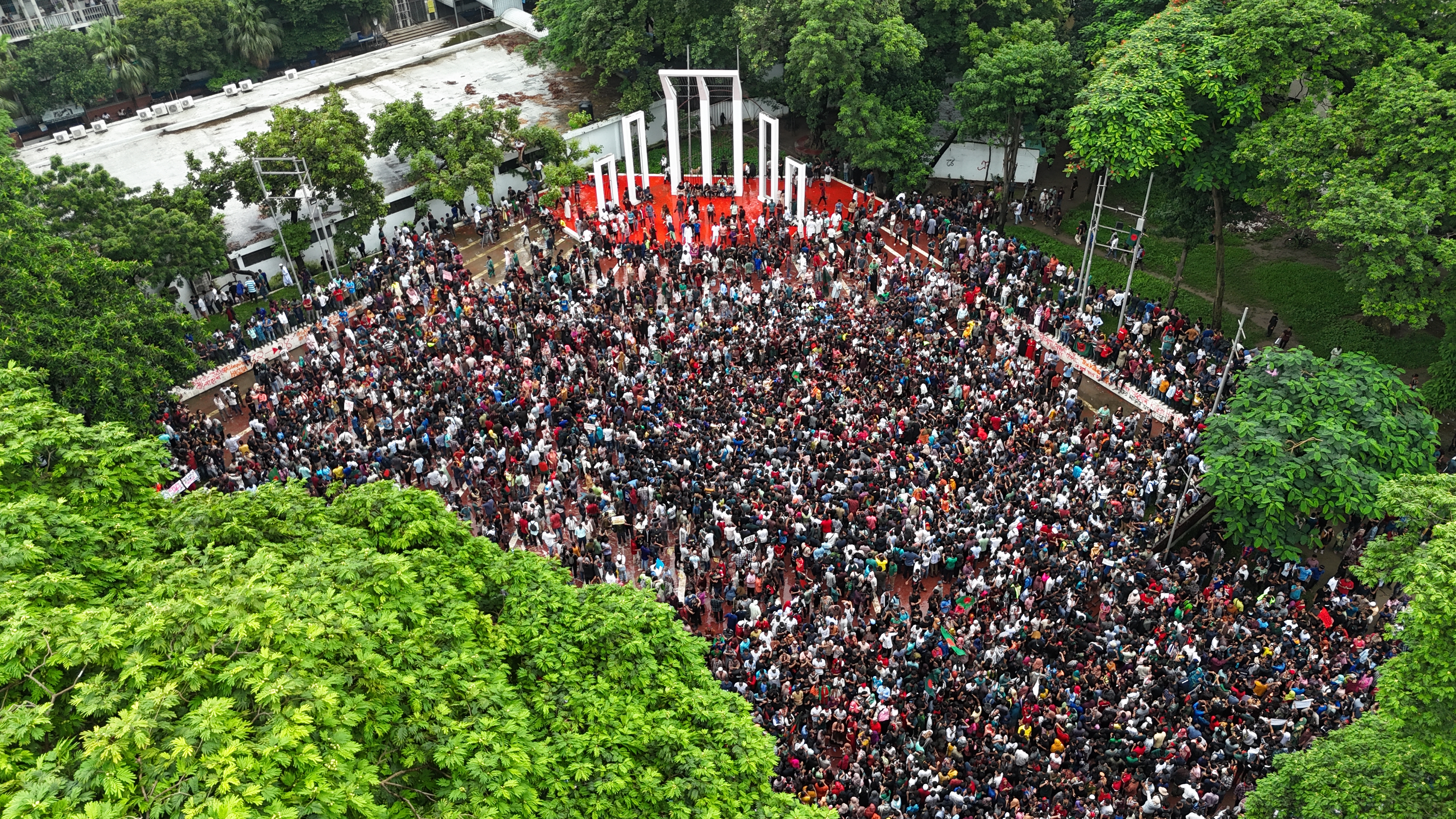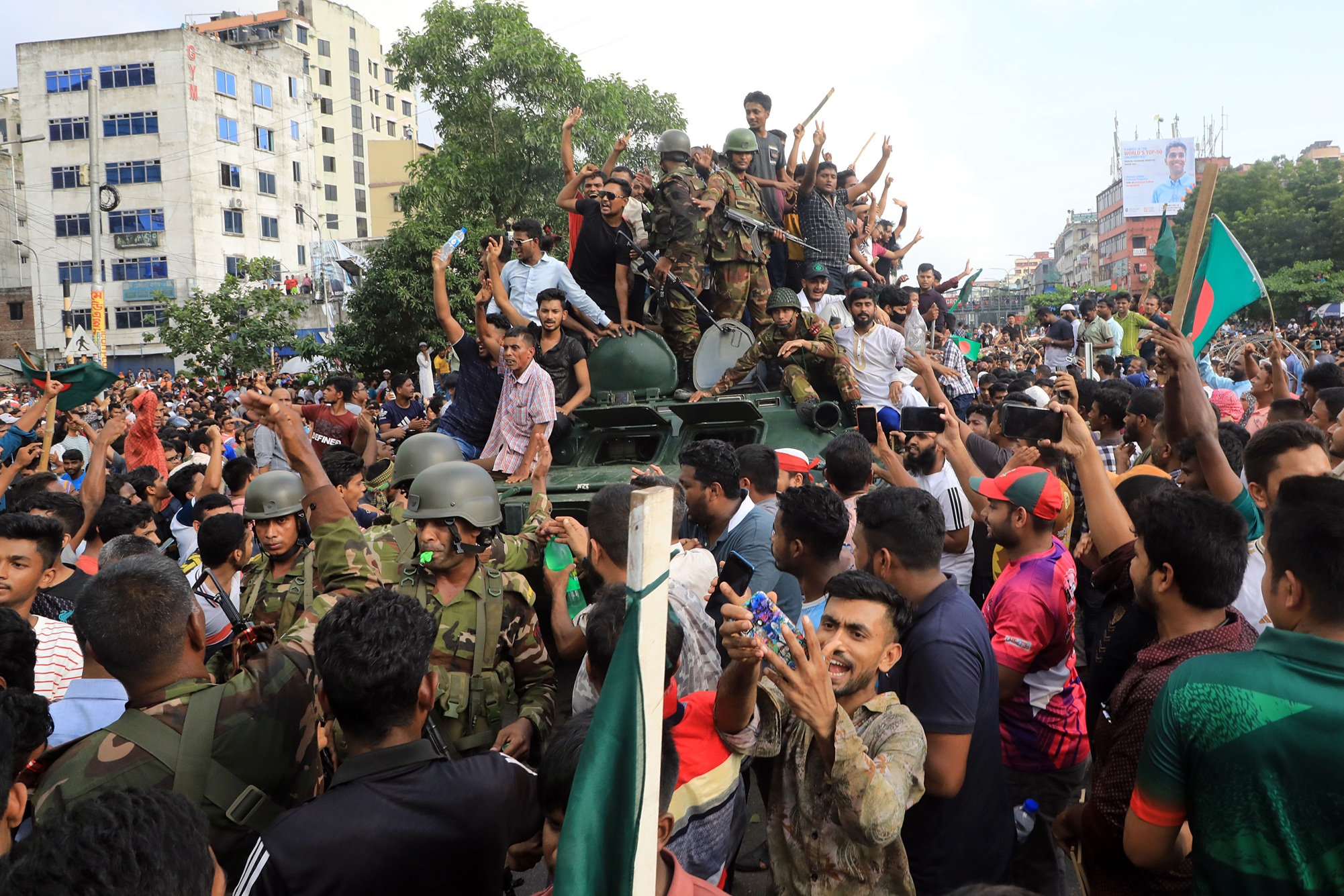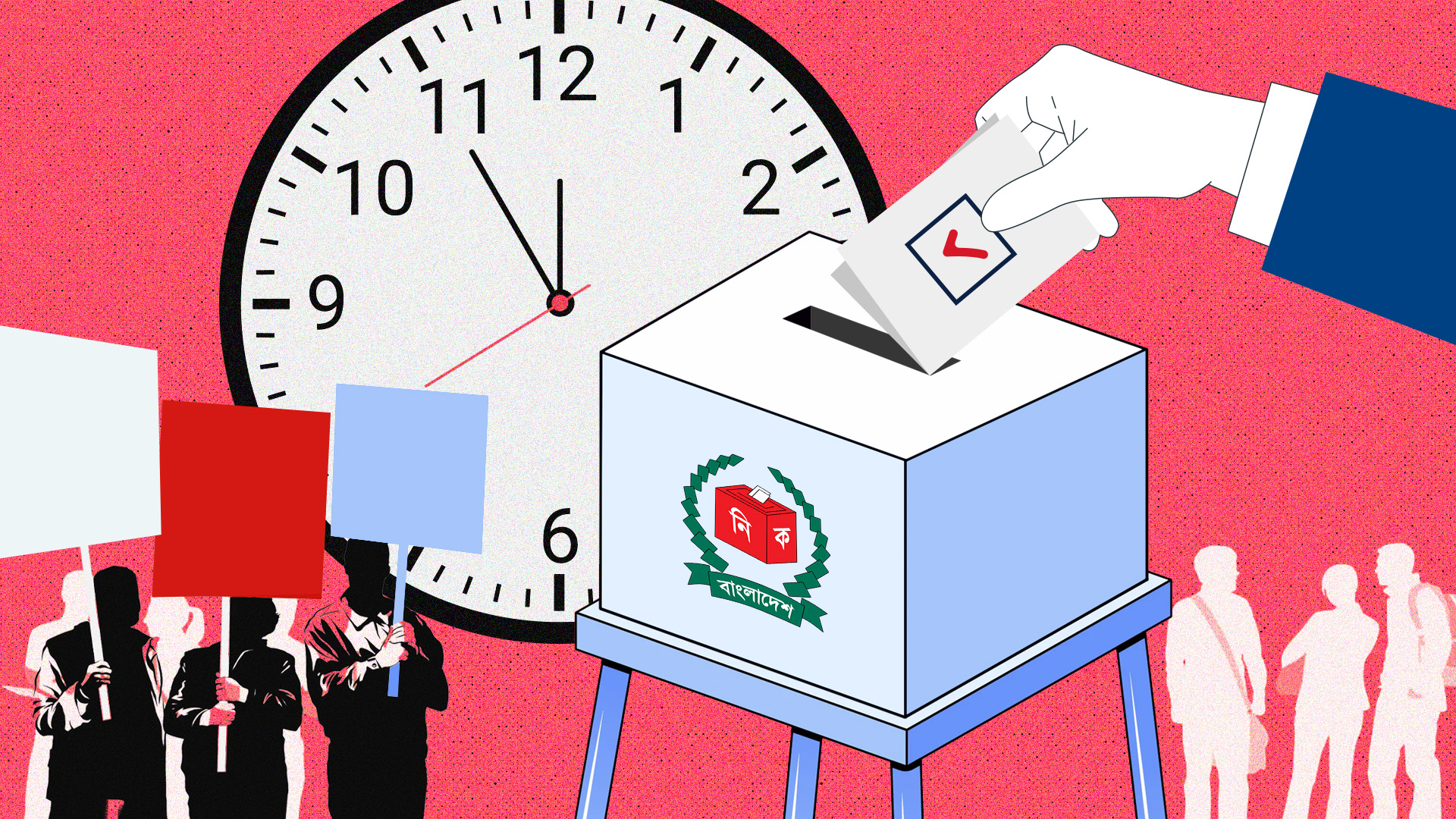Political parties must support the election drive

We cannot say it vociferously enough that to regain a semblance of global and regional support and strengthen our confidence about our future, holding elections is a must-do. Prof Muhammad Yunus is the best and perhaps only person able to head the interim government, but his government is still an interim one. We must replace it with an elected one, which will come to power through a free and fair expression of public will.
When we hear about the numerous conditions that are being placed by various political parties, we cannot help but wonder whether we really understand the true importance of a national election. We seem to think of it more as an event rather than a process through which people exercise their right to select the leadership that will govern us. We cannot forget for a moment that the polls belong to the people, not to any political party. None of them has any right to declare that elections cannot be held unless this or that demand is met. They have no right to deprive the voters of their fundamental right to exercise their franchise. It is the most basic of rights and every citizen is entitled to it the moment he/she is born. Vote is the symbol of a citizen's political existence.
The introduction of the caretaker government system to oversee elections served us well. Under the caretaker government system, we had four elections—1991, June 1996, 2001, and 2008—which lived up to acceptable standards. Though the losing parties always complained about the outcome, they functionally accepted the results and joined the governance process.
However, through a constant process of walkouts, followed by long-term boycotts and even resignations, both the Awami League and BNP stymied the growth of parliament as the House of the People. The frequent absence of the opposition in parliament gave the ruling party the opportunity to make it an extension of the executive branch. Yes, the ruling party must be held responsible for preventing the parliament from playing its due role, but the opposition must also share the blame for debilitating the House by failing to make use of it to ensure accountability and transparency.
One of Sheikh Hasina's biggest crimes was manipulating elections and engineering their outcomes. She not only produced fraudulent results but also destroyed democracy, made the institution of people's representatives questionable, and cast doubt on the election, which is the most authentic process through which we can understand people's minds.
Through that one action, repeated three times, the previous regime turned parliament into a rubber stamp body and MPs into pliant clerks who, with some honourable exceptions, carried out the boss's wishes in exchange for various benefits, including usurping development funds. The parliament, instead of being the watchdog over the executive, became the latter's lapdog, abdicating all its supervisory and monitoring role.
It needs to be mentioned here that an agreement has already been reached among all the parties, including the BNP (with a note of dissent, of course), for setting up a bicameral legislature with an Upper House. BNP wants the seats of the Upper House to reflect those in the Lower House, while the rest want it under the proportional representation (PR) system.
BNP has been consistently seeking the election as early as possible. Some, if not all, feel that the party's insistence for an early election is based neither on their love for democracy nor a desire to implement people's right to vote, but to cash in on the opportunity that the present situation provides. It is based on the fact that, given the peculiar circumstances, it is most likely to get the majority votes in the polls. So the earlier the election, the better it is for them. The fear is that the longer it stays on the sidelines, the more its reputation will be eroded as a section of their rank and file has already started indulging in practices that dragged the previous ruling party through the mud.
The newest political party, National Citizen Party (NCP), feels that the later the election is held, the better the party's chances are to gain people's support. So while it has accepted the election timeline, it wants to see the implementation of the July Charter—produced by the National Consensus Commission—before the polls, and which should have precedence over the constitution or any law. This demand raises fear of unconstitutional behaviour that will set a dangerous precedent. Therefore, we see merit in the question raised by BNP leader Salahuddin Ahmed, "Can an agreement among political parties be considered as a 'supra constitutional document'?"
Jamaat-e-Islami also supports the election timeline, but it has presented a new demand that is complicated and challenging, and one that our people are completely unfamiliar with.
While agreeing to having the election in February 2026, Jamaat is demanding that the election for both the lower and upper houses be conducted through the PR process. In the past, whatever percentage of the overall votes that Jamaat got, they did not get as many seats under the first-past-the-post (FPTP) system. Under the PR system, they expect to get more seats. Hence, the demand.
However, a major shortcoming of the PR system is that people don't get to vote for their chosen candidates, but for their parties. Hence, a direct link between a candidate and a voter is not there, which deprives the voter from choosing a specific candidate on the basis of their merit, honesty, capabilities, and human qualities. In our country, people generally prefer to vote for candidates that they know and can hold accountable. An MP's link with his/her constituency is vital, and that is what motivates people to vote.
Why is the PR system practised so rarely in the world? Why do most countries prefer the direct election of a candidate chosen by the voters? No country in the world, except Germany and Israel, have the PR system. Nepal, after more than five years of negotiations, has adopted a hybrid system of electing the Lower House of 275 MPs, 60 percent of whom (165 MPs) are elected directly through the FPTP system; the rest (110 MPs) are elected through the PR system. People's preference globally is clear—for the FPTP system as against the PR system. Jamaat must keep this in mind and not impose a system that our people have no experience of, just out of party interest.
NCP, which has yet to test public trust in them, aligns itself with the PR demand, again thinking that they are likely to get a few more seats that way, putting party interest above that of the nation.
If we believe in democracy, which all our political parties claim to do, then we must work together to hold the coming election and make it credible for our people to celebrate and the world to honour.
Our capacity to complicate matters, especially the political ones, seem to be inexhaustible, even when we know that doing so may affect the process of restoration of democracy by postponing elections. We have seen this happen many times, yet we fail to learn. The election in February 2026 is among the most important challenges that we are going to face, and once completed, it may hopefully pave the way not only for restoring economic and sociopolitical stability but also the implementation of much-needed reform initiatives. Our political parties can either create situations that will impede the election process, or they can adopt a collaborative attitude that will expedite our march towards it. We must not forget that our democratic journey has faltered many times in the past. After 54 years of independence, we cannot further delay or distort our democratic path forward.
Mahfuz Anam is the editor and publisher of The Daily Star.
Follow The Daily Star Opinion on Facebook for the latest opinions, commentaries and analyses by experts and professionals. To contribute your article or letter to The Daily Star Opinion, see our guidelines for submission.




 For all latest news, follow The Daily Star's Google News channel.
For all latest news, follow The Daily Star's Google News channel. 



Comments